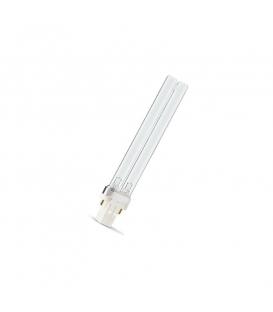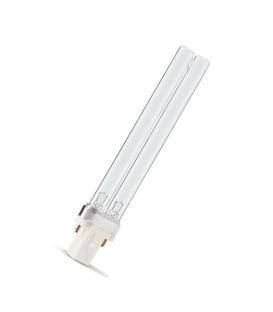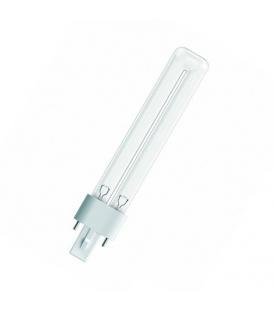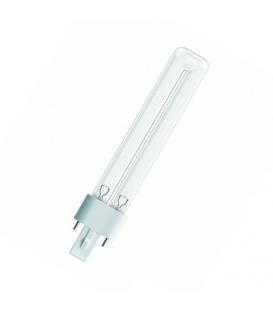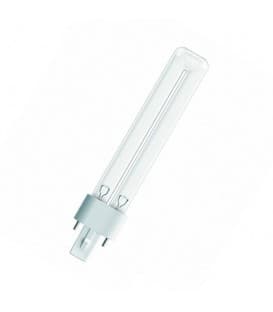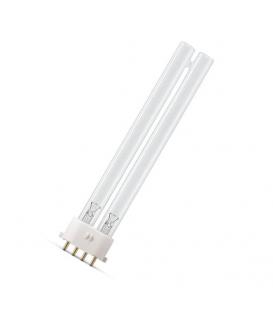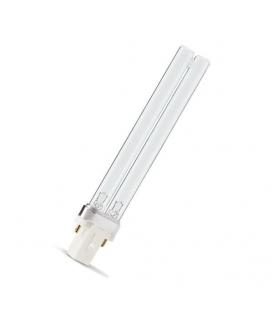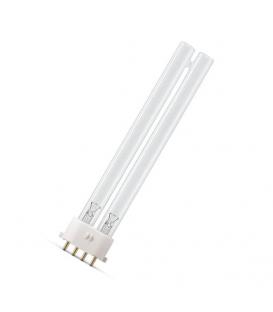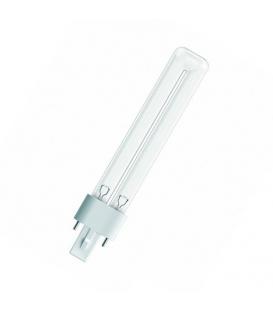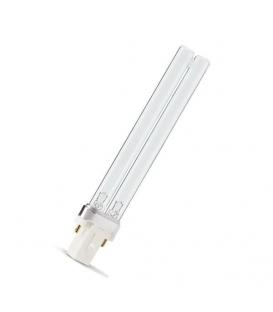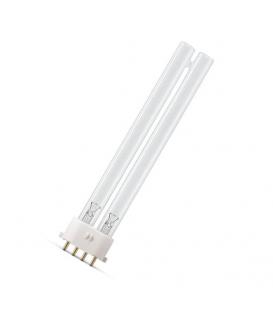PL-S G23 UV-C sterilization
G23UV-C sterilization lamps are devices that emit ultraviolet (UV) light in the UV-C spectrum, which has a wavelength range of approximately 200 to 280 nanometers. UV-C light is known for its germicidal properties and is effective in killing or inactivating microorganisms like bacteria, viruses, and mold. UV-C light works by damaging the DNA and RNA of these microorganisms, preventing them from reproducing and rendering them non-infectious....
sterilization, lamps, effective, disinfection
Description of PL-S G23 UV-C sterilization
... a wavelength range of approximately 200 to 280 nanometers. UV-C light is known for its germicidal properties and is effective in killing or inactivating microorganisms like bacteria, viruses, and mold. UV-C light works by damaging the DNA and RNA of these microorganisms, preventing them from reproducing and rendering them non-infectious.
Benefits of G23 UV-C Sterilization Lamps:
- Highly Effective Disinfection: UV-C light is a powerful disinfection method that can kill a wide range of pathogens, including drug-resistant bacteria and viruses.
- Chemical-Free: UV-C sterilization does not require the use of chemicals, making it environmentally friendly and reducing the risk of chemical residues.
- Quick and Efficient: UV-C sterilization can achieve high disinfection rates in a relatively short amount of time, depending on the dosage of UV-C light used.
- Non-Toxic: UV-C light poses no residual health risks, as it does not leave behind harmful byproducts or residues.
- Reduced Microbial Resistance: Unlike some traditional disinfection methods, such as antibiotics, UV-C light does not contribute to the development of microbial resistance.
Areas of Applications: G23 UV-C sterilization lamps find applications in various fields, including:
- Healthcare: UV-C lamps can be used to disinfect hospital rooms, surgical instruments, and medical equipment to reduce the risk of healthcare-associated infections.
- Water Treatment: UV-C is used to disinfect drinking water and wastewater by killing harmful microorganisms and pathogens.
- Food and Beverage Industry: UV-C sterilization can be employed to decontaminate surfaces in food processing plants and extend the shelf life of certain food products.
- Air Purification: UV-C lamps are integrated into HVAC systems and air purifiers to kill airborne pathogens, improving indoor air quality.
- Laboratories: UV-C sterilization is used in laboratories to sterilize equipment, biological safety cabinets, and workspaces.
- Public Transportation: UV-C technology can be applied to disinfect buses, trains, and airplanes, reducing the spread of infectious diseases.
- Residential Use: UV-C lamps can be used in homes to disinfect surfaces, air, and water, particularly in high-risk areas like kitchens and bathrooms.
- Aquariums and Pools: UV-C light can help control algae growth and eliminate harmful microorganisms in water bodies.
It's important to note that the effectiveness of UV-C sterilization depends on factors such as the intensity of UV-C light, exposure time, and the distance from the light source. Proper safety precautions should be taken when using UV-C lamps, as prolonged exposure to UV-C light can be harmful to human skin and eyes.
Narrow the selection
Featured products

